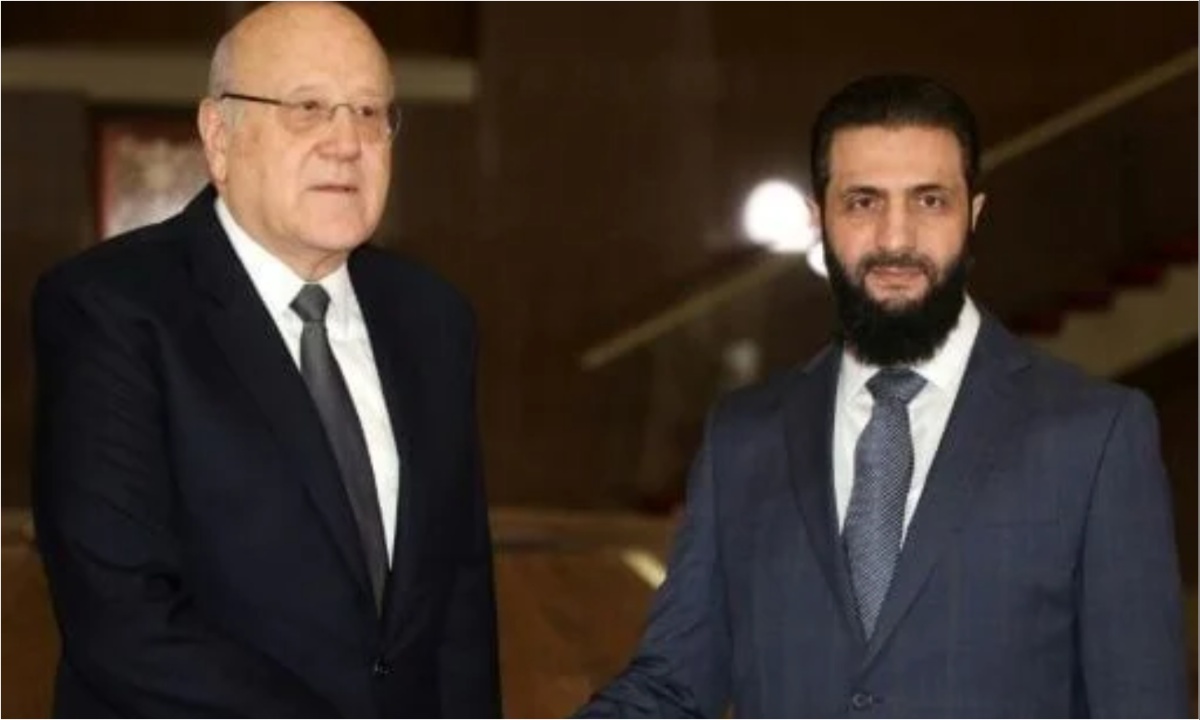Lebanon’s caretaker Prime Minister Najib Mikati recently visited Syria, marking the first trip by a Lebanese prime minister to the neighboring country in 15 years. During his visit, Mikati held a joint press conference with Syria’s de facto leader, Ahmed al-Sharaa, in Damascus. The leaders discussed several key bilateral issues, including security concerns related to border challenges, the smuggling of goods and weapons between the two countries, and Syrian deposits in Lebanese banks. They both emphasized the importance of addressing these issues through collaboration, with a focus on establishing committees to tackle them effectively.
One of the primary points of discussion was the prevention of smuggling, particularly the trafficking of weapons and drugs from Syria into Lebanon. Mikati expressed concern over the porous nature of Lebanon’s eastern border, which has been notorious for smuggling activities. This issue has been of particular importance to Lebanon, and the leaders agreed to take steps to secure the border and reduce illegal crossings, which have posed a significant challenge to the country’s security and stability.

The two leaders also discussed the issue of Syrian refugees in Lebanon, which remains a major concern for the Lebanese government. Syria’s civil war has caused more than 1.5 million Syrians to seek refuge in Lebanon, placing a tremendous strain on the Lebanese economy and public services. Al-Sharaa highlighted Syria’s efforts to find a solution to the refugee situation, acknowledging the burden it places on Lebanon and calling for greater cooperation between the two countries to address the crisis.
In addition to these pressing issues, Mikati and al-Sharaa expressed a desire to strengthen long-term strategic relations between Lebanon and Syria. Both leaders acknowledged that the two countries share common interests, especially following the election of a new president in Lebanon, Joseph Aoun. Al-Sharaa expressed hope for more robust bilateral ties, underscoring the potential for long-term cooperation in various sectors, including economic and security matters.
The visit also took place against the backdrop of historical tensions between Lebanon and Syria. For many years, Syria exerted significant influence over Lebanon, even maintaining a military presence there for nearly three decades until 2005. The relationship between the two countries has been complex, particularly after the assassination of Lebanese Prime Minister Rafik Hariri, which led to Syria’s withdrawal under international pressure. Despite this, Mikati’s visit and the discussions between the two leaders signal a shift toward greater cooperation, with both sides looking to address their mutual challenges in a spirit of collaboration.


